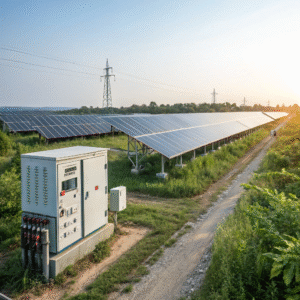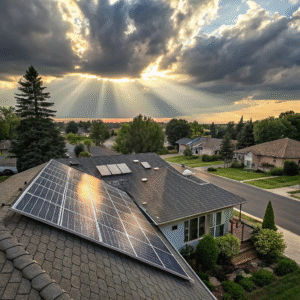Is Having Solar Panels Worth Buying Battery Storage?
by
Is Having Solar Panels Worth Buying Battery Storage?
You've invested in solar panels but still see high electricity bills. The missing piece might be battery storage to maximize your solar investment.
Battery storage is worth buying with solar panels if you experience frequent power outages, have time-of-use electricity rates, or want energy independence. For most homeowners, batteries add 20-30% to system costs but can increase solar self-consumption by 50-80%.
Transition Paragraph:
Now let's explore some key questions about solar batteries to help you decide if they're right for your situation.
What is the Lifespan of a Solar Battery?
Your solar panels last 25+ years - but will your batteries keep up? Battery lifespan depends heavily on technology and usage patterns.
Most solar batteries last 10-15 years, with lithium-ion typically offering 5,000-7,000 cycles at 80% depth of discharge, while lead-acid lasts 3-5 years with 500-1,200 cycles at 50% discharge.
Comparing Battery Lifespans
| Battery Type | Typical Lifespan | Cycle Life | Depth of Discharge | Temperature Sensitivity |
|---|---|---|---|---|
| Lithium-Ion | 10-15 years | 5,000-7,000 | 80-90% | Moderate |
| Lead-Acid | 3-5 years | 500-1,200 | 50% | High |
| Saltwater | 10+ years | 3,000-5,000 | 100% | Low |
Key factors affecting battery life:
- Number of charge/discharge cycles
- Depth of discharge (how much capacity is used)
- Operating temperature
- Maintenance requirements
- Quality of battery management system
Why Are My Solar Cells Draining Fast?
Seeing your solar battery drain overnight? Several factors could be causing this frustrating energy loss.
Solar batteries drain fast due to excessive loads, insufficient solar production, battery aging, extreme temperatures, or standby power consumption from inverters and monitoring systems (typically 1-5% daily).
Common Causes of Rapid Battery Drain
-
Electrical loads:
- Running high-power appliances at night
- Vampire loads (always-on electronics)
- Faulty wiring causing parasitic drain
-
System issues:
- Undersized battery bank
- Poor solar production (shading, dirty panels)
- Inefficient charge controller
- Battery memory effect (in older battery types)
-
Environmental factors:
- Cold temperatures reducing battery capacity
- Hot temperatures accelerating degradation
- Frequent deep discharges
What Drains Solar Battery?
Understanding what consumes your stored solar energy is key to optimizing your system's performance.
Solar batteries are primarily drained by home appliances (refrigerators, AC units), inverter standby power, phantom loads, battery self-discharge (2-5% monthly), and system inefficiencies (5-15% conversion losses).
Typical Solar Battery Drain Sources
| Drain Source | Percentage of Discharge | Solutions |
|---|---|---|
| Refrigerator | 20-30% | Upgrade to ENERGY STAR model |
| Air Conditioning | 30-50% | Use fans or mini-splits instead |
| Inverter Standby | 5-10% | Choose high-efficiency inverter |
| Phantom Loads | 5-15% | Use smart power strips |
| System Losses | 5-15% | Proper system sizing/maintenance |
To minimize drain:
- Conduct energy audit
- Replace old appliances
- Install energy monitoring
- Implement load scheduling
- Consider battery expansion
My Insights
Having installed hundreds of solar+storage systems, I've found batteries make the most financial sense when paired with time-of-use rates or for backup power needs. For net metering customers without reliability concerns, the payback period is often too long to justify the added cost.
Conclusion
Solar batteries provide valuable backup power and increased self-consumption but aren't cost-effective for all homeowners. Analyze your energy usage patterns and utility rates before investing in storage.



